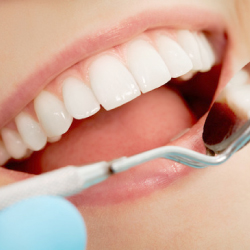
What is Oral Surgery?
Sometimes the removal of a tooth is a necessary part of oral rehabilitation. Whether through extensive breakdown, decay, inappropriate positioning or infection, when your dentist is no longer able to save the tooth it may be necessary to remove it.
How does it affect me?
If your tooth needs to be extracted, it will require a procedure to make the tooth numb and then remove it painlessly. Though in itself a specialty, we are pleased to be able to perform the majority of both simple and complex tooth extractions in-house, including wisdom tooth and surgical extractions. For those cases that are made more complicated, we have a reliable network of specialists we can liaise with.
What can I expect following an extraction?
As with any form of surgery in any part of the body, following the procedure there is likely to be some discomfort, some swelling, some bruising and the area may bleed. These are all completely normal side effects and should subside within a few days of the procedure. Your Dentist will talk to you about how to reduce the chance of the area becoming infected and how to ensure the healing process goes as smoothly as possible.
I’ve had my tooth extracted, what now?
If you’ve had your tooth removed recently, it is important to rinse your mouth regularly with warm saltwater. This helps to cleanse the extraction site and prevent any food or plaque from building up on the site. Over the next few days, the area should start to feel more comfortable.
What is a dry socket?
No matter how well you look after the area post-extraction, one in every ten extractions carries a risk of developing something called a dry socket. This is where the blood clot that is initially formed – that lies over the bony socket – is dislodged, but is not replaced by anything. If this happens, this exposes the socket to all the bacteria of the mouth, which can lead to a superficial infection of the area. A dry socket, or Alveolar Osteitis, is a self-limiting infection. This means that the body will manage and deal with it effectively without the need for antibiotics, but you will need to be seen by your Dentist to first clean the site through and pack in some sedative dressing. The chance of developing a dry socket is increased if you smoke, particularly within 10 days after the procedure, if you are taking any oral contraception, if it is a complex extraction or if you have had a dry socket before. It is important you discuss these factors with your Dentist prior to your procedure to ensure you can be given the best recommendations tailored for you.
What happens with the gap?
Once the problematic tooth is gone, there are numerous different options available for you and your dentist to restore the space. These range from closing the space with orthodontic treatment (braces), the placement of a dental implant UK, the provision of a bridge, or the fabrication of a denture. Your dentist will be able to provide tailored information to you and advise you on the best options for you. Contact us for more information.
Book your appointment online
See our clinician availability and book a slot that works best around your schedule. Only Private appointments are bookable.
Book your appointment online
See our clinician availability and book a slot that works best around your schedule. Only Private appointments are bookable.
